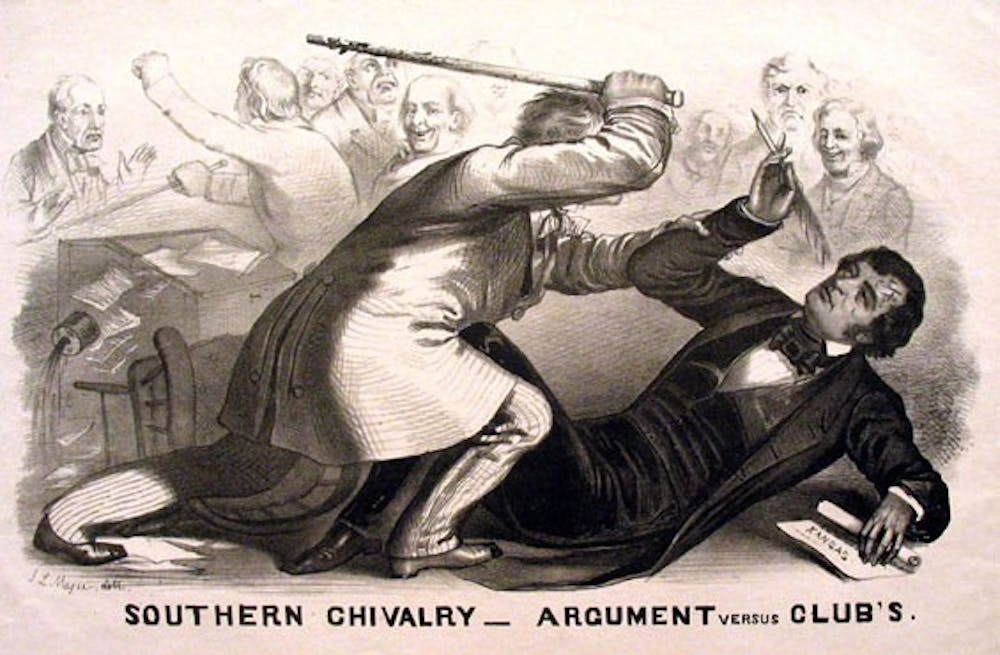The government shutdown, fiscal crisis, and threat of the US dollar losing its reserve status, has left many to wonder what the future
 Wrestlemania Cage Fight: Preston Brooks uses illegal weaponry to knock out Charles Sumner. Photo courtesy Wikimedia Commons.
Wrestlemania Cage Fight: Preston Brooks uses illegal weaponry to knock out Charles Sumner. Photo courtesy Wikimedia Commons.holds for our country.That future is pretty promising compared to what Americans thought over 150 years ago during the mid-19th century. If you think that congress is pretty crazy right now, you may want to step into the doors of the Capital on May 22, 1856.
Traditionally combat was reserved for formal armies and other skirmishes, not between the House of Representatives and the Senate. But on that day it happened in the Senate chamber when Preston Brooks caned Senator Charles Sumner. Given this was a time where gentlemen dueled for their honor; it still shows that congress has always been a bunch of maniacs who can barely agree on anything.
The crisis back then was so intense that, 154 years ago today (That is 1859 for those that cannot do math, like me), John Brown was in the middle of a raid on Harpers Ferry in what was is now West Virginia (then still just Virginia). John Brown was an abolitionist who, prior to Harpers Ferry, was known for his involvement in Bleeding Kansas. The Harpers Ferry raid was an attempt to end slavery and kick-start a new America.
 Fun fact: This painting of John Brown in Bleeding Kansas is in the Kansas State House. Photo courtesy Wikimedia Commons.
Fun fact: This painting of John Brown in Bleeding Kansas is in the Kansas State House. Photo courtesy Wikimedia Commons.Brown originally planned his revolt to happen in 1858, but one of his followers threatened to reveal the plan. After this scare, he delayed his plan by one year and rented a farm in Maryland across the Potomac River from Harpers Ferry. Brown gathered his force of about 21 men,
who were mostly white, and made his move. They captured Hall’s Rifle Works, which was a supplier of weapons for the military. Brown and his men called for local slaves to join the fight, but alas they did not come. They were on their own to face the local militia and the Marines who were dispatched from Baltimore under the head of the famous Robert E. Lee. Lee would later choose to fight for Virginia over the Union in the Civil War.
Lee’s men ended the raid and eight of Brown’s men were killed. Both of John Brown’s sons were killed in the revolt. Brown was captured and taken to Charlestown, Virginia and was tried and sentenced to death. Brown was hanged, but his abolitionist movement was not. Many abolitionists did not condone violence, but the Harpers Ferry raid would continue to increase tension in the country. A couple of years later the Civil War broke out and the rest as they say, is history.
Have any burning questions? Drop us a line at sparkysquill@gmail.com or find us on twitter @sparkysquill





